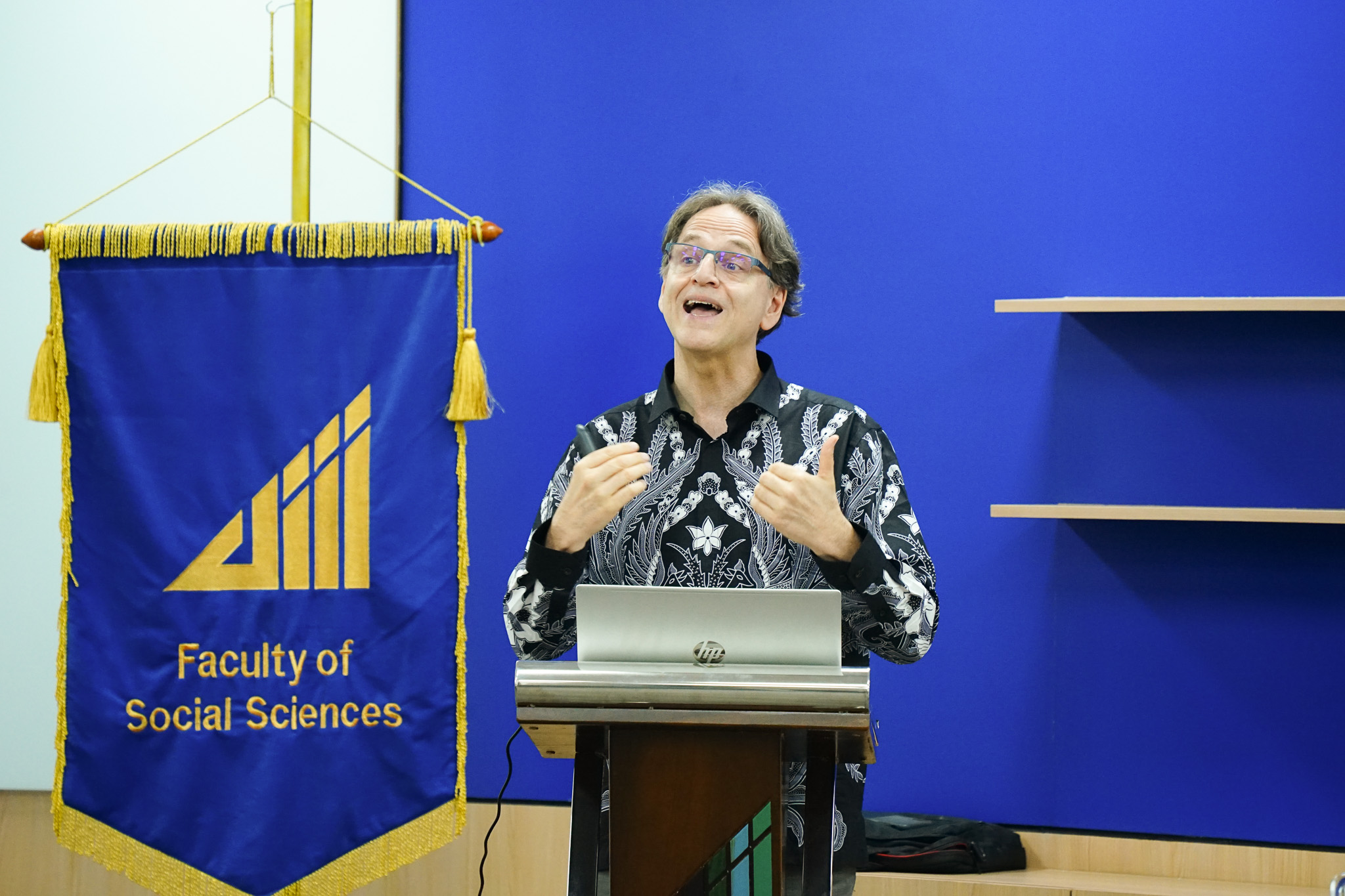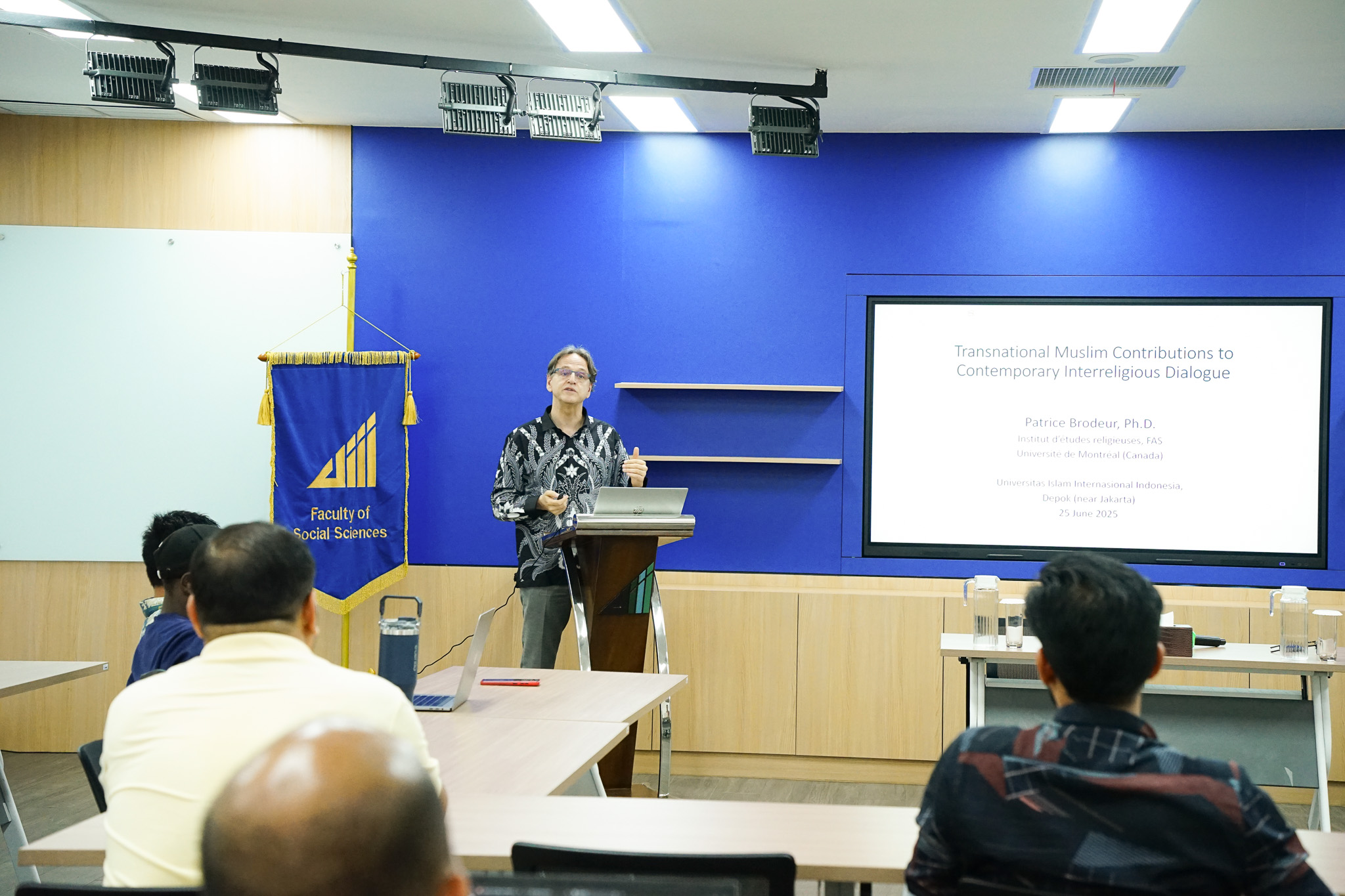More From News
UIII Builds a Bridge to Costa Rica
February 26, 2026
July 15, 2025
Contributor: Supriyono | Editor: Dadi Darmadi | Photo: Sarah Permatasari

The Faculty of Social Sciences at UIII (FOSS) hosted its 65th Brownbag Series on Wednesday, June 25, 2025, featuring Professor Patrice Brodeur from the University of Montreal, Canada. As a globally recognized scholar of Islamic thought and interfaith dialogue, Prof. Brodeur delivered a compelling lecture titled “Transnational Muslim Contributions to Contemporary Interreligious Dialogue,” drawing on his experience across more than 50 countries and a lifetime of academic and civil society engagement.
Patrice Brodeur is an associate professor at the Institute of Religious Studies at the Faculty of Arts and Science of the University of Montreal. He is also Senior Advisor at the International Centre for Dialogue (KAICIID) in Vienna, Austria. From 2005 to 2015, he held the Canada Research Chair (Junior): Islam, Pluralism and Globalization, where he led an interdisciplinary research team on contemporary Islamic thought and different forms of dialogue.
In his lecture, Prof. Brodeur offered a sweeping analysis of how Muslims around the world—whether as individuals, institutions, or nation-states—have played a growing and increasingly visible role in fostering interreligious understanding. He began by reflecting on the distinction between personal and institutional efforts, noting that many Muslims contribute to interfaith dialogue without carrying any official title. Such grassroots and intellectual engagements, often led by scholars, activists, and civil society leaders, have been essential in pushing the boundaries of global dialogue.
Prof. Brodeur traced the historical arc of interfaith efforts, beginning with predominantly Christian-led initiatives in the West and pointing to a significant shift in the past two decades. He argued that after the 9/11 attacks, Muslim-majority countries began to take a more active role in leading and funding interreligious dialogue, motivated by a desire to reclaim the global narrative around Islam and promote peaceful coexistence.
This evolving landscape also includes large international organizations such as the Organization of Islamic Cooperation (OIC) and ISESCO, which have supported initiatives ranging from education to religious diplomacy. Prof. Brodeur highlighted that many of these institutions have increasingly worked in collaboration with interfaith partners across the globe, forming bridges between traditions that were once seen as divided.

Notably, Prof. Brodeur stressed the importance of sustainability in interfaith initiatives. One-time events may be meaningful, but the real impact comes from sustained efforts—such as annual or biennial conferences that allow trust and collaboration to grow over time. He pointed to long-running gatherings in Doha and Kazakhstan as examples of how regular dialogue can lead to measurable social change and cross-cultural understanding.
He also recounted major intellectual and diplomatic milestones, such as the Amman Message in 2005 and the 2007 open letter A Common Word Between Us and You, both of which sought to articulate a unified Muslim voice committed to peace and cooperation with other faiths. These documents not only responded to global misconceptions about Islam but also laid theological and ethical foundations for future dialogue.
Prof. Brodeur concluded by emphasizing the importance of academic institutions in advancing this work. He called on universities, especially those in the Muslim world, to teach, research, and embody the principles of dialogue, pluralism, and peaceful coexistence. For him, education is not only a means of intellectual development but also a strategic path toward global harmony.
The Brownbag Series is an ongoing academic forum organized by the Faculty of Social Sciences at UIII to encourage critical discussion on pressing global issues. Designed as an informal lunchtime lecture series, it brings together scholars, practitioners, and students to engage in dialogue across disciplines and cultural perspectives.
Universitas Islam Internasional Indonesia